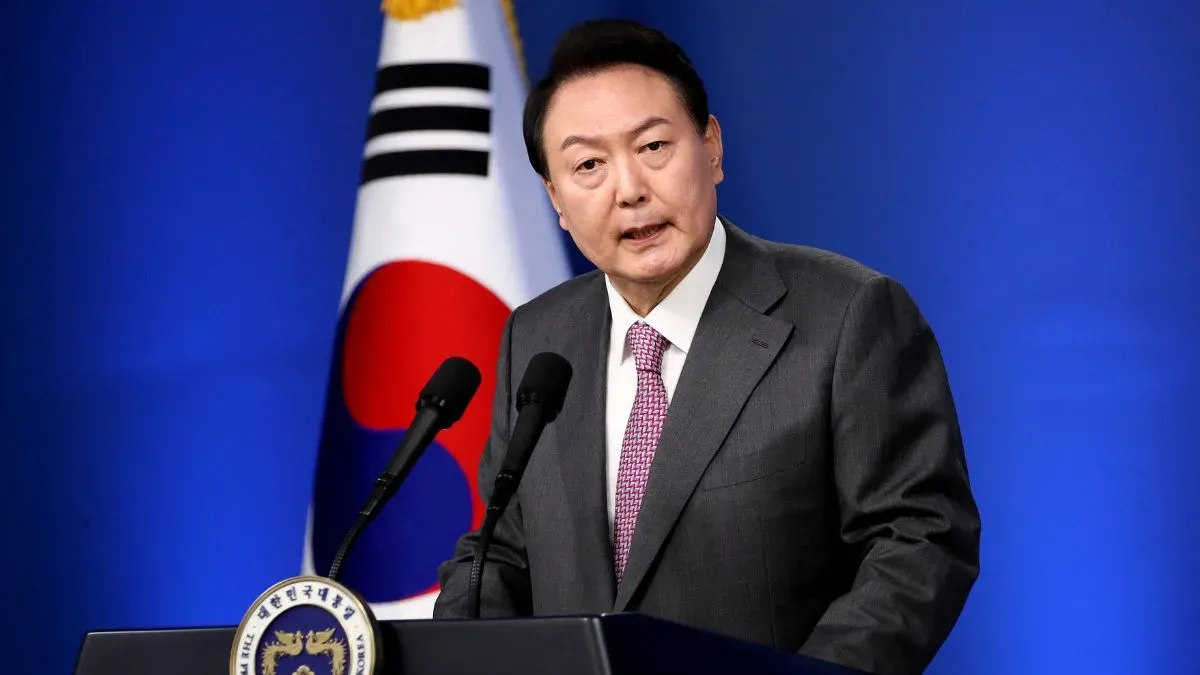South Korea's Constitutional Court Begins Impeachment Trial of President Yoon Suk Yeol Amid Political Crisis
South Korea’s Constitutional Court starts President Yoon's impeachment trial amid political turmoil and public protests.

In a momentous development for South Korea’s political landscape, the country’s Constitutional Court has officially begun proceedings for the impeachment of President Yoon Suk Yeol. The impeachment process stems from his controversial decision to declare martial law, which led to widespread protests and plunged the nation into political turmoil. As the court deliberates, the nation faces heightened uncertainty, with both the ruling party and the public anxiously awaiting the outcome.
The Background: Impeachment Sparks Political Crisis
The impeachment process started last Saturday after members of the National Assembly voted to impeach President Yoon. The vote came after Yoon’s decision to declare martial law, an action that many saw as an overreach of power, leading to mass protests across the country. Calls for his resignation have grown louder, as citizens demand an end to the political instability his actions have caused.
With the court now tasked with making a decision within six months, it faces immense pressure to resolve the crisis. The key question is whether the court will uphold the impeachment or reinstate the president. Meanwhile, public hearings could stretch for months, potentially prolonging the uncertainty surrounding the country’s leadership.
A Divided Political Landscape
The ruling People Power Party (PPP), which Yoon represents, has been in disarray since the impeachment motion passed. In the wake of the vote, PPP leader Han Dong-hoon announced his resignation, marking a dramatic shift in the party’s direction. Han, who had initially supported Yoon, faced mounting pressure from his own party, particularly from pro-Yoon factions, to step down. His decision to resign reflects the party’s internal struggle and further intensifies the political crisis.
In his resignation speech, Han expressed his deep regret over the situation, apologizing to the South Korean people who have suffered as a result of the ongoing turmoil. He also acknowledged that it was impossible for him to continue leading the party under these circumstances, especially after the Supreme Council of the PPP declared they would resign in protest. This resignation crisis within the PPP highlights the depth of the division that Yoon's impeachment has caused.
The Impeachment Trial: What’s at Stake?
As the impeachment trial moves forward, the Constitutional Court is under intense scrutiny. With only six of the nine justices currently in place—following the retirement of three justices—the trial’s outcome could be influenced by the limited number of judges. The absence of full representation on the court raises concerns about whether it can fairly and decisively rule on such a high-stakes issue.
If the court upholds the impeachment of President Yoon, South Korea will be required to hold fresh presidential elections within 60 days. In the meantime, Prime Minister Han Duck-soo has assumed the role of acting president, ensuring that the country remains under leadership during this critical period.
Will President Yoon Take the Stand?
As the court proceedings unfold, one key question remains: Will President Yoon take the stand to defend his actions? To date, Yoon has refused to comply with a summons to meet with prosecutors, including a missed appointment last Sunday in Seoul. The president’s refusal to cooperate has only fueled the controversy surrounding his presidency.
Yoon has remained defiant, insisting that his decision to declare martial law was necessary to protect the country and restore order. He has vowed to fight his impeachment to the end, even as public sentiment continues to shift against him.
Political Fallout and Public Unrest
The ongoing impeachment trial is just one part of the broader political and public unrest in South Korea. Demonstrations calling for Yoon’s removal continue to intensify, with protesters pledging to maintain pressure on the government throughout the trial. These protests have become a focal point for a growing movement of South Koreans who feel that Yoon’s actions have undermined the country's democratic institutions.
The impeachment trial, coupled with the PPP’s internal strife, has left South Korea at a crossroads. Citizens are divided on the future of their president, with some staunchly defending his actions, while others see his presidency as an affront to the country’s values.
What Happens Next?
As the Constitutional Court deliberates, the political uncertainty in South Korea remains palpable. The court has six months to issue its ruling, but given the volatility of the situation, a quick resolution is expected. Whether or not Yoon is removed from office, South Korea faces a long road to political recovery. The events surrounding this impeachment have already reshaped the political landscape, and the fallout will likely continue to reverberate for years to come.
In the meantime, with the PPP in disarray and public protests ongoing, the country’s future leadership remains uncertain. South Koreans are watching closely as the trial unfolds, hoping for a resolution that brings stability back to the nation.
